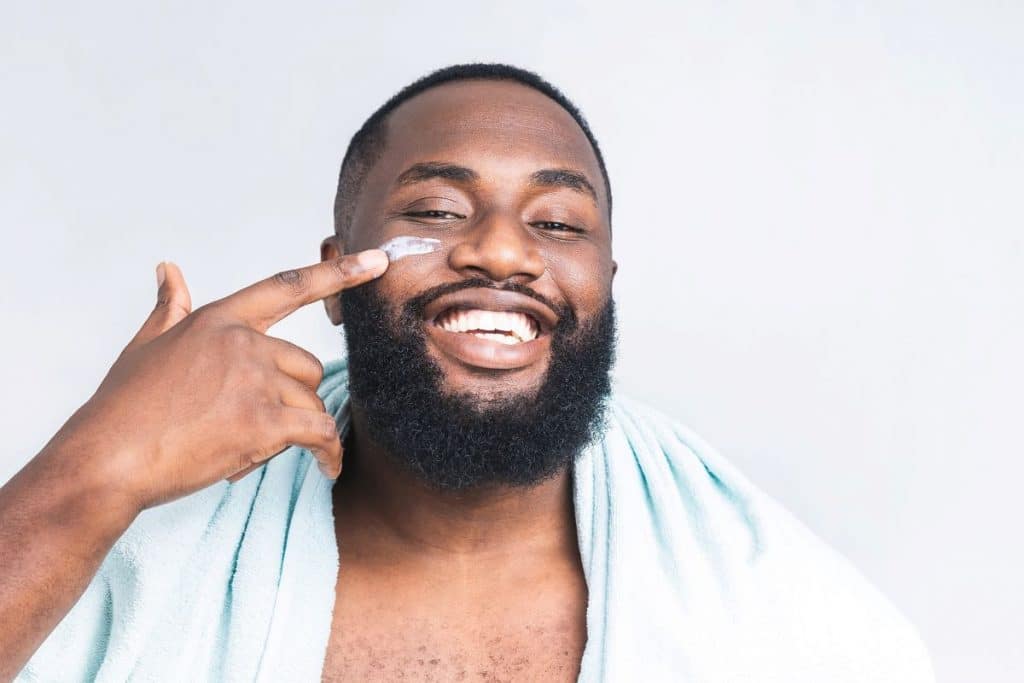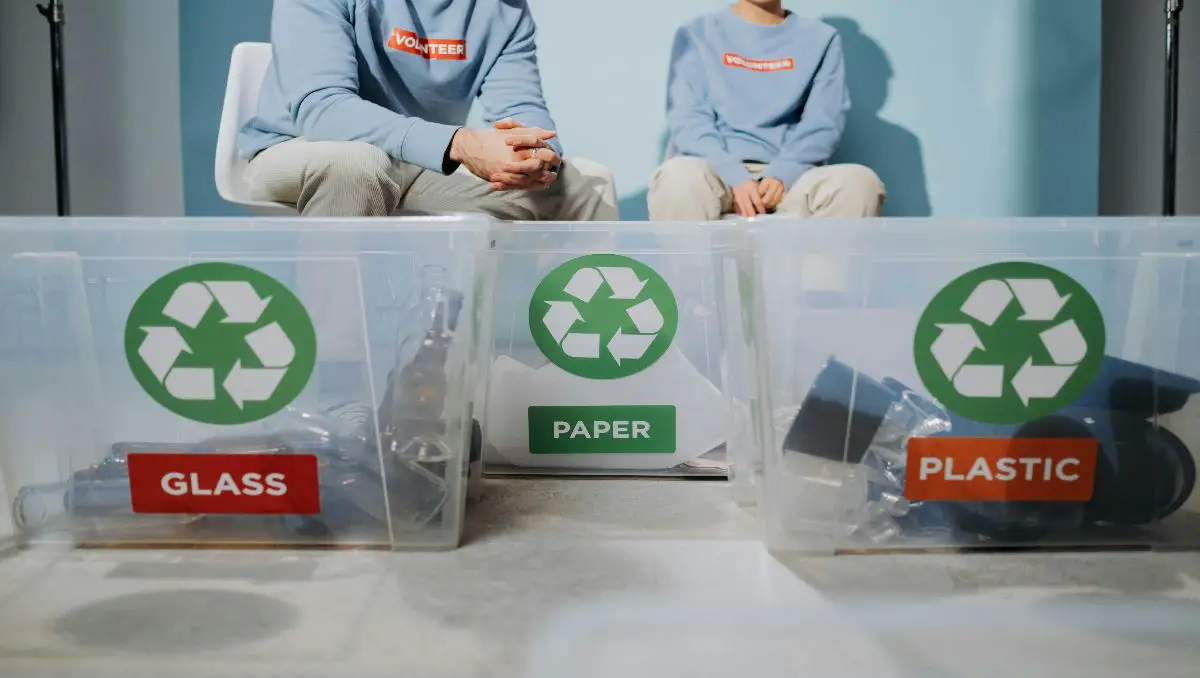Wearing sunscreen is essential as it helps protect your skin from the harmful effects of the sun’s ultraviolet (UV) rays. But should you wear sunscreen at night?
There’s really no reason to wear sunscreen at night since there are no UV rays to worry about. In fact, it may even cause clogged pores if you don’t wash it off before going to bed.
To find out why, continue reading.
Quick Navigation
- When Is Sunscreen Fitting to Use in the Evening?
- Pros and Cons of Wearing Sunscreen At Night
- Should I Wear A Night Cream With SPF?
- Can Sunscreen Block UV Rays From The Screens?
- How To Protect My Skin From Blue Light Damage?
- Why Do I Need To Wash Off Sunscreen At Night?
- In a nutshell
When Is Sunscreen Fitting to Use in the Evening?

Though most dermatologists do not recommend sunblock at night, there are a few exceptions to this rule.
Consider this:
If you are going to be in a place or scenario where you will be exposed to artificial UV light sources, such as tanning beds, then you should wear sunscreen for sun protection.
For example, you went to a nail spa one evening to get some gel nail polish. The procedure entails drying your nails under a UV dryer. For a short period, your hands can become dry, and they may appear damaged. Applying sunblock could help during this situation.
Aside from this situation, there is generally no need to wear sunscreen at night. In fact, wearing sunscreen at night can be counterproductive as some sunscreen ingredients can cause irritation and dryness when used on the skin for extended periods. They may even clog your pores.
Pros and Cons of Wearing Sunscreen At Night

Sunscreen has some benefits for the skin, such as moisturization and nourishment. That is why there are still advantages when you use it in the evening. However, if you want to achieve better results for your skin, there are proper alternatives aside from sunscreen at night.
Moreover, some disadvantages may outweigh the benefits of using it at night. In this section, we will discuss the pros and cons of using sunscreen in the evening. This will help you decide whether or not you should apply the said product or not based on your circumstances.
Pros
Here are the other benefits of using sunscreen in the evening:
Provides extended protection if the sun is still out
There are places and seasons where the sunset is late. Some best examples are the north and south of the Arctic Circle and Northern Norway. In these places, the midnight sun is a natural occurrence during summer. You need to wear sunblock during these times even when the clock tells you it’s already evening.
Gives extra nourishment and moisturization
Moisturizing mineral sunscreens use vitamin E and beetroot to nourish the skin, leaving it soft and supple. People with dry skin also use sunblock to protect them from UVA and UVB rays and make their skin dewy and not flaky.
Prevents the formation of age spots and other forms of hyperpigmentation
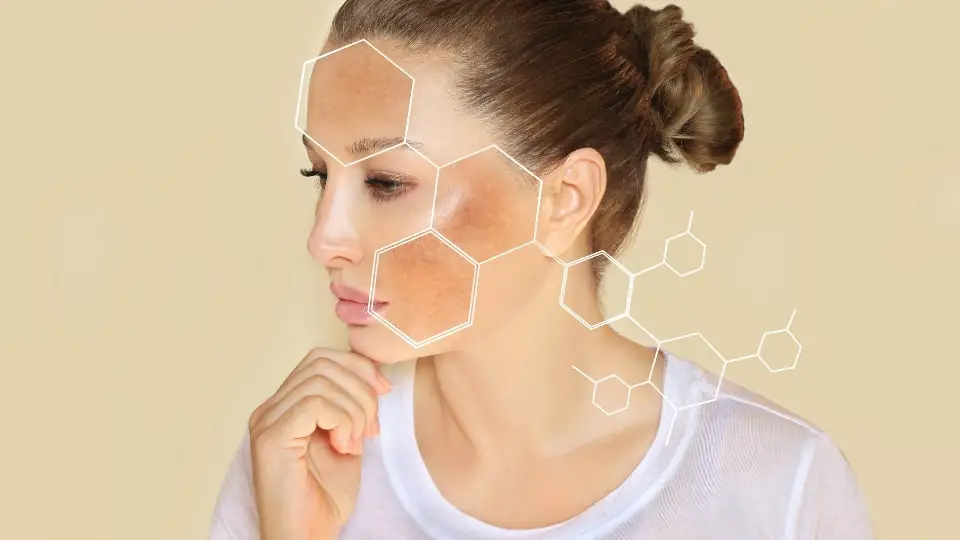
If you want to maximize the purpose of sunblock and reap the benefits of it protecting you from the sun, then there is something you should consider. Too much sun exposure and hot temperatures can cause melasma or hyperpigmentation.
To prevent these dark spots from occurring, buy sunscreen with zinc oxide. My friend, who has sensitive skin, noticed that her melasma never gets darker and does not get burned after she switched to a sunblock with zinc oxide.
Avoids sunburned skin
Regardless of your age, gender, or race, excessive exposure to the sun’s UV rays (as well as UV rays from tanning beds) increases your risk of developing skin cancer. In their lives, one in five Americans may develop skin cancer. By obstructing the sun’s harmful ultraviolet rays, sunscreens can help prevent sunburn.
Note: There are other, more effective ways to prevent these conditions, such as avoiding prolonged sun exposure and using skin care products that contain ingredients like retinol (at night) as anti-aging.
Cons
The disadvantages of applying sunscreen at night are:
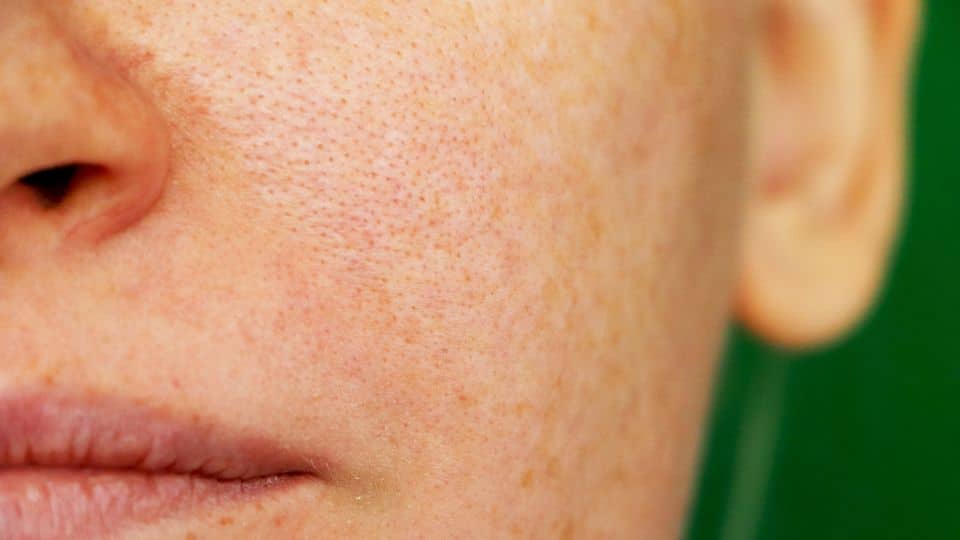
- The sun’s ultraviolet rays are not present at night, so there is no need to protect the skin from them.
- Sunscreen before bed can increase the chance of clogging or irritating skin, especially those with larger pores and sensitive skin.
- It may be expensive in the long run.
- Wearing sunscreen may lead you to cause breakouts, dryness of the skin, and other skin irritations.
- There are more effective ways to prevent age spots and hyperpigmentation, such as avoiding prolonged sun exposure and using skin care products with specific ingredients.
- The potential drawbacks when you wear sunscreen at night outweigh the potential benefits.
When having trouble with acne, pimples, or clogged pores, it is even more crucial to wash off sunscreen at night.
Should I Wear A Night Cream With SPF?
It is optional to wear a night moisturizer with SPF. Because ultraviolet rays from the sun are not present at night, there is no need to protect the skin from them. Furthermore, some chemical sunscreens can induce irritation and dryness when worn on the skin for extended periods, which is counterproductive for night creams.
Instead of using an SPF moisturizer at night, concentrate on preserving your skin during the day by using a broad-spectrum sunscreen with at least SPF 30 and limiting your exposure to the sun’s harmful rays.
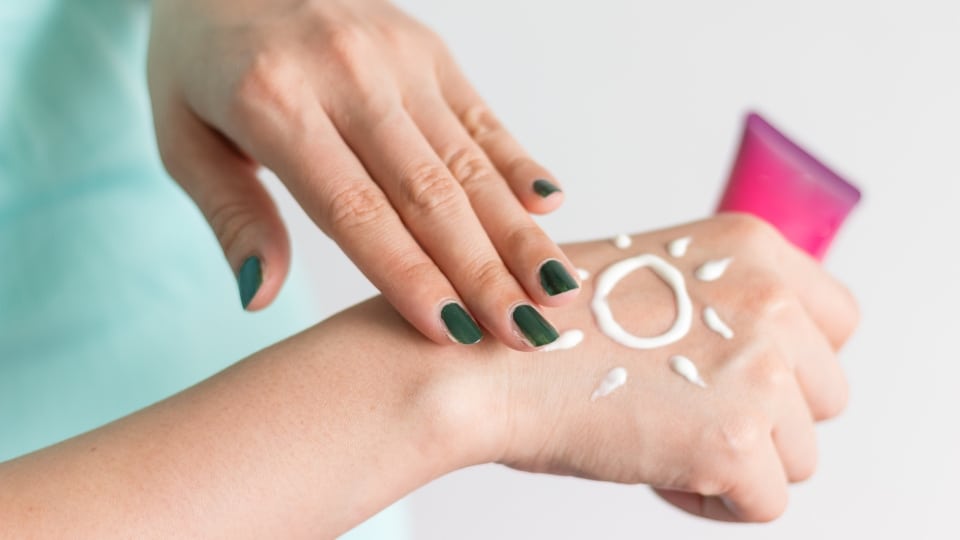
Most dermatologists prefer patients to use a daily moisturizer with sunblock in the morning.
At night, apply a nighttime moisturizer that is meant to nourish, replenish hydration, and restore your skin while you sleep. This will help to keep your skin healthy and plump-looking. It’s preferable to utilize skincare products with no unnecessary ingredients since you won’t require this at night.
The purpose of sunscreen-based lotions is to block out UVA and UVB rays, both of which cause photodamage, pigmentation, wrinkling, aging of the skin, and premature cancers. Suppose you put it on at night when there isn’t much UV around. In that case, you’re just not getting that added benefit.
Pro Tip: While we sleep, our skin is in repair mode; speed up the process by using a high-quality night cream suitable for your skin type.
Can Sunscreen Block UV Rays From The Screens?

Can sunscreen block harmful UV rays from screens? The short answer is no; sunscreen is ineffective at blocking UV from screens.
Sunscreen is designed to act as a shield from the harmful effects of the sun’s ultraviolet (UV) rays. These rays are a form of radiation that can cause sunburn, sun damage, and even skin cancer if the skin is exposed for too long. Sunscreen works by absorbing or reflecting UV rays, which prevents them from reaching the skin and causing harm.
However, screens on electronic devices, such as smartphones, laptops, and TVs, do not emit ultraviolet rays. These screens use different types of light, such as LED or LCD, to display images and text. While these lights can harm the eyes if stared at for too long, they do not produce ultraviolet rays, so sunscreen cannot block them.
So, if you are worried about the effects of screens on your skin, you should not rely on sunscreen for protection. Instead, take regular breaks from staring at screens, and consider using blue light-blocking glasses to protect your eyes from the harmful effects of LED and LCD lights.
Can Wearing Sunscreen At Night Prevent Skin Aging?
No, using sunscreen at night will not keep your skin younger. Sunscreen is applied to the skin to protect it from the sun’s ultraviolet (UV) rays. These rays are emitted predominantly by the sun and are not present at night. Wearing sunscreen at night offers no additional protection from the sun’s UV radiation and may cause skin discomfort.
UVA rays are the main factors of skin aging. Apply sunscreen during the day when exposed to the sun’s UV radiation to protect your skin from premature aging. You can also prevent premature aging by avoiding excessive sun exposure, quitting smoking, and maintaining a good diet and lifestyle.
How To Protect My Skin From Blue Light Damage?
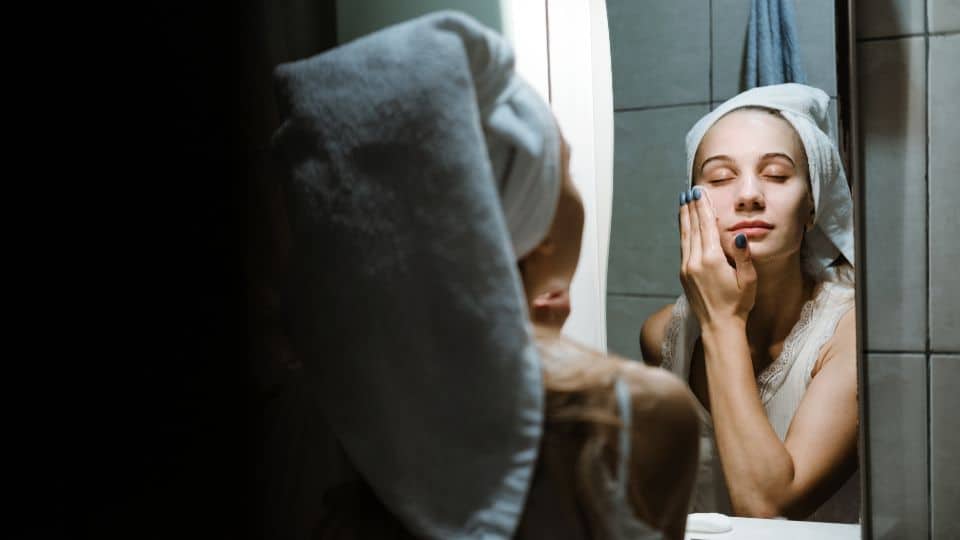
Blue light can induce cell shrinkage thus speeding up a person’s aging process. It is present in electronic devices. Buy physical sunscreens that are perfect in filtering blue light damage. It is best to apply sunblock whenever you are using a laptop or mobile phone.
They act as a protective film for your skin that reflects the blue light rays from penetrating. You can also pair it with anti-oxidant-containing skincare. However, in the evening, using Vitamin C or Retinol can do the job. They have the power to reverse the damage caused by blue light exposure.
Why Do I Need To Wash Off Sunscreen At Night?
You need to wash off your sunscreen before going to bed as it may lead to clogged and larger pores. Note that SPF content in sunscreens is considered as a large molecule. Thus, can induce pores to become bigger. You can also have milia known as milk spots because of this. It is a small white bump or cyst under your epidermis.
In a nutshell
In conclusion, unless you go to a tanning session or the sun sets late, wearing sunscreen at night is unnecessary because there are no sun rays. To shield your skin from damaging UV rays, sunscreen is crucial throughout the day. To ensure the best protection, remember to reapply sunscreen every two hours, right after swimming, dripping with sweat, or both.

